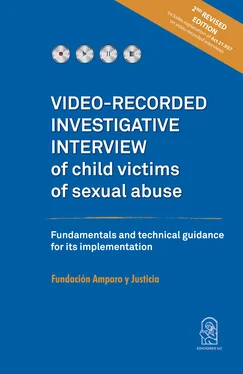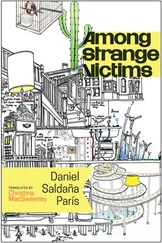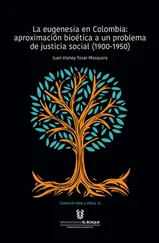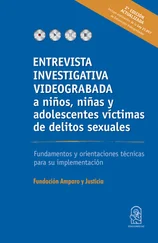The video-recorded investigative interview is an internationally validated technique designed to collect more detailed and better-quality information during the child’s testimony, which might in turn avoid bias and contamination of the account. This higher-quality information can then be used to guide the investigation and subsequent ruling on the case more effectively.
The successful implementation of Act No. 21,057 depends not only on the Act’s merits, but also on providing the necessary number of properly trained interviewers to conduct adequate interviews. For me, the most impressive aspect thus far has been the progress and effort made by the institutions and individuals involved to reach appropriate standards. However, further work is still needed, as academic research indicates that ongoing training is essential if the Act is to be maintained over time and achieve its objectives.
Of course, there are still challenges, but I am confident that they will be overcome, as I have witnessed an understanding of the necessity of this reform to one day achieve the full respect of children’s rights in Chile.
I recommend this book as a knowledge base for all those who wish to learn about this investigative proceeding, its foundations, and how it modifies the current criminal procedure in Chile. It will also be a useful tool for actors in the criminal justice system who wish to understand how their role will be affected by the application of this Act.
I wish you all success; all of your efforts will be worthwhile.
Nick Quine
Retired Sergeant, Avon and Somerset Police, United Kingdom
Video-recorded investigative interviewing teacher and teacher instructor
The implementation of the first stage of Act No. 21,057, which regulates video-recorded interviews and other protective measures for minors who are victims of sexual offenses, began on October 3, 2019. This public policy includes a series of measures and procedural changes designed to prevent secondary victimization of child victims of sexual and other serious offenses as they go through criminal proceedings.
This is one of the most important reforms to the Chilean criminal justice system since the Criminal Procedure Reform of 2000. It implies a paradigm shift, through which a new and important step is taken to adapt criminal proceedings to children’s needs and characteristics, according to their age and maturity level. These adaptations ensure that children are effectively treated as persons with rights. In addition, the so-called “Video-Recorded Interviews Act” incorporates tools that make it possible to obtain more precise and reliable background information for the investigation and judicial definition of cases.
Although concerns about improving the conditions under which children must face a judicial process have existed for a long time, they were confronted with both the difficulty involved in modifying the operation of the entire system and the cultural beliefs and prejudices rooted in institutional practices related to the treatment of children.
In 2007, facing this scenario, and in compliance with its commitment to children’s rights, Fundación Amparo y Justicia promoted a joint effort between actors from public institutions, academia and civil society to raise awareness of this issue in Chile.
For a decade, the foundation carried out multiple actions in order to advocate the need for the Video-Recorded Interviews Act. Between 2007 and 2015, it organized five international seminars1 with investigative interview experts from both academia and foreign government institutions, including psychologists and scholars Martine Powell, Michael Lamb, David La Rooy and Tony Butler, judges and scholars Thomas Lyon and Carlos Rozanski, and retired Sergeant Nick Quine. These specialists helped convey the importance of the investigative interview both as a fundamental measure to prevent secondary victimization, as well as a technique that, by using standardized procedures, provides higher quality information to guide the investigation of crimes.
Between 2008 and 2010, an Inter-Institutional Working Group was convened to discuss at length the measures needed to improve the existing procedures. This group was made up of representatives from the Public Prosecutor’s Office, the Judicial Branch, the Ministry of Justice, the Public Defender’s Office, the National Service for Minors (SENAME), Carabineros de Chile, Policía de Investigaciones, Chile’s Forensic Medical Service, the Ministry of Health and prominent scholars. Furthermore, in 2008, the MIDE UC Research Center at Pontificia Universidad Católica (PUC) was entrusted with a study that examined the “Perceptions of the investigation and prosecution processes in cases of child sexual assault in the Metropolitan, Valparaíso and Bío Bío Regions” (2009). The results of this research were conclusive in terms of the negative effects of multiple interrogations on child victims of sexual abuse.
Against this backdrop, a second Inter-Institutional Working Group was convened in October 2011 to finalize the draft bill that would establish a video-recorded interview system for child victims of sexual abuse. The group was comprised of representatives from the Public Prosecutor’s Office, the Ministry of the Interior and Public Security, the Judicial Branch and Fundación Amparo y Justicia. After a year of work, with the advice of scholars from the Faculty of Social Sciences and Law of the Universidad de Chile, a bill was drafted, which included its technical foundations, an implementation design and a study of associated costs. This material was then delivered to the Executive Branch in October 2012, which, after studies conducted to ensure its budgetary feasibility, presented the final bill to the Congress in January 2014.
This first milestone was also supported by the impact on public opinion that was generated by the social media campaign “No me pregunten más ” (“Ask Me No More”), started by Fundación Amparo y Justicia in October 2013. Thanks to this campaign, more than 21,000 people signed a petition to get the Act passed, and dozens of public figures endorsed the initiative.
The Video-Recorded Interviews Act was under consideration in the Congress for four years. During this period, there were public communication campaigns and citizen mobilization activities; also, technical evidence was provided for the discussion of the bill in the congressional committees.
In 2014, aware that the prevention of secondary victimization did not depend solely on the adoption of this Act, Fundación Amparo y Justicia, in conjunction with PUC’s Faculty of Law, began teaching the international certificate course “Los derechos de los niños, niñas y adolescentes víctimas de delitos sexuales y el sistema judicial” [“ The rights of child and adolescent victims of sexual abuse and the judicial system ”]. This course raised awareness and enhanced the training of 459 justice system employees regarding the appropriate measures and ways of interacting with children. In addition, the first version of this book was launched in 2016 to provide the most up-to-date information on the investigative interview and the best practices for its application.
At the end of 2016, a collaboration agreement was signed between Fundación Amparo y Justicia and the Public Prosecutor’s Office to implement the VII procedure in that institution. The following year, with the advice of retired Sergeant Nick Quine, an investigative interviewing training program was started for interviewers and instructors. This initiative was later joined by Carabineros de Chile, Policía de Investigaciones, the Judicial Branch and the Ministry of the Interior and Public Security.
Читать дальше












